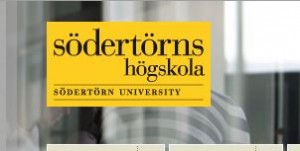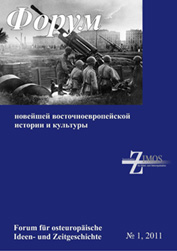 Baltic Sea Region and Eastern Europe: A new generation on the move
Baltic Sea Region and Eastern Europe: A new generation on the move
CBEES Annual conference 2014, December 4-5
Deadline: April 20, 2014
CALL FOR PAPERS
1989 is an important date in the history of Central and Eastern Europe. Since the collapse of state socialism this date has become a marker for a break in historical continuity and a starting point for a whole range of research on processes and developments labeled as ‘post-socialist’, in ‘transition’ or ‘transformation’. The point of departure for this multidisciplinary conference is the different processes—economic, social, cultural, political and ecological—that have been taking place in the area since the collapse of state socialism. In particular, it seeks to focus on the present, by looking closer at the past and forward to the future.
A striking feature, 25 years after 1989, is the persistent diversity of political systems, cultural norms and social values right across the region. Alongside adaption to EU norms and standards, for example, nationalist, chauvinist and xenophobic sentiments continue to flourish. Civil society itself has become a major social actor in this period, with different constituencies mobilizing and operating in different ways and toward different ends. Environmental problems, such as the protection of ecosystems in the Baltic Sea, have become ever more complicated and continue to resist solution.
The overall theme of the conference is to draw attention to contemporary processes and challenges, and to the role of the new generations that have emerged in Central and Eastern Europe and the Baltic Sea area 25 years after the systemic change. We seek to shift the emphasis from ‘post-socialist’ development or ‘transition’ as such to a concern with shared experiences and memories of socialism among the new generations. What changes are to be observed in the social, economic, political, cultural and environmental processes of today’s ‘post-socialist’ societies? Can we still speak about socialist legacies, and in what way? Is there a generational change underway and what role does the emerging new generation have for the processes studied?
Keynote speakers soon to be announced. Please check on this site.
The organizers welcome proposals for:
Single papers.
Panels consisting of 3-4 panelists and one chair (maximum time for individual papers: 20 min).
Roundtables of 4 to 5 participants (5 minute opening statements from each participant followed by a discussion with the audience).
Prearranged panels are given priority in the planning of the program and receive earlier notification of acceptance. Individual papers will, upon acceptance, be arranged into suitable panels by the organizers.
We welcome contributions from scholars with different disciplinary backgrounds on following topics:
Kinship.
Cultural expressions and freedoms of speech.
Environmental sustainability and survival.
Geopolitics, international security and political identities.
Democracy and political development.
Demographical changes.
Collective action and social movements.
Feminism and women’s rights.
Nature/Culture interfaces.
Minorities, migration and the Roma.
Imagining regional futures through prognostication, planning and branding.
Each proposal should include:
For single papers a maximum 250-word abstract
for panels and roundtables a one page presentation of the theme, with names of participants and chair and a brief presentation of each participant’s contribution
suggested thematic session
contact details.
Deadline for submission of paper or panel proposals:
April 20, 2014 to CBEESannual2014@sh.se
Conference secretary can be reached by the same address.
There will be a possibility for early career researchers with accepted papers to receive a travel contribution. If you need that, please indicate this in your application and include a motivation.
Conference home page www.sh.se/CBEESannual2014.
Organizing committee:
Research Leader Nicholas Aylott
Professor Mark Bassin
Professor Joakim Ekman
Research Leader Monica Hammer
Researcher Carl Marklund
Researcher Dominika Polanska.
Södertörn University, located in the southern Stockholm area, has professional, creative research environments that range over many disciplines and fields. The research has a contemporary focus united with an active and critical approach to the past. Many of the research groups and research projects strive to achieve a high level of contemporary and social relevance.
Research into the Baltic Sea Region and Eastern Europe has a special position at Södertörn University.
The Centre for Baltic Sea Region and East European Studies (CBEES) is a multidisciplinary research centre focusing on the Baltic Sea region and Eastern Europe. Besides working internationally through networks, conferences and workshops, the centre’s task is to coordinate, strengthen and develop the university’s research, postgraduate education and other activities that focus on the Baltic Sea region and Eastern Europe, with the aim of being an academic leader in this area.













